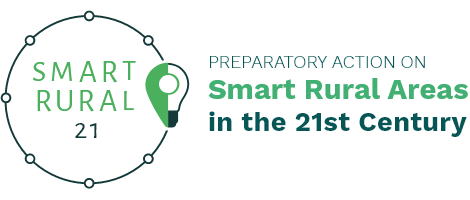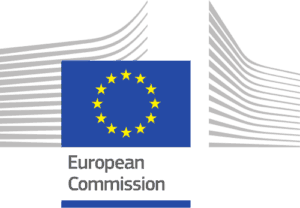Smart Solutions
Scattered Hotel (Albergo Diffuso)
Offering a range of local housing as accommodation for tourists through a shared online platform, together with local produce and activities.
Implemented in : Sauris/Zahre
Country : Italy
What’s the solution?
The ‘scattered hotel’ is a solution which turns a range of local housing into accommodation possibilities for tourists. When grouped together under a common marketing strategy and online booking platform, the result is to present a coherent offer: like one hotel, but where the rooms are available across the village.
The rooms in the scattered hotel are available throughout the year, offering tourists a chance to have an authentic local experience, living like locals while staying in traditional houses of the village.
As part of the integrated scattered hotel approach, the online platform also promotes and directs users to local farm and craft products, as well as catering and other touristic activities available in the village. It also presents local stories, local people and local traditions. This adds to the authentic local experience being offered to tourists, making for a modern and attractive touristic offer.
What makes it smart?
The solution is smart because it combines broad engagement of the community together with the possibilities offered by online technologies to create a new vision of a hospitable village to tourists, building on local heritage (in terms of both housing and produce).
The solution creates a win-win system generating benefits for different categories of residents, from home owners to local business activities and contributing to a wider improvement of local services for everybody in the village.
The scattered hotel solution also creates additional opportunities to present a good business case to attract inward investment for regenerating local housing.
The solution demonstrates:
• Social innovation – the solution engages property owners, producers, craftspeople and other local citizens in a shared strategic approach of being a hospitable village and appreciating the touristic value of the local housing heritage and local products.
• Digital innovation – it combines the whole touristic offer of the village (accommodation, produce, activities, traditions…) through one online platform.
• Business innovation – it creates new job and entrepreneurial opportunities related to meeting the desires of modern-day tourists for authentic local experiences – building on local assets
The solution is highly transferable and has already been replicated by other villages in Italy, Bosnia Herzegovina, Croatia and Albania.

How is the solution implemented?
- The scattered hotel system requires an integrated management system and a strong local coordination, with the aim of involving the whole community in providing services and activities for tourists and fostering the economic and social growth of the local community. The key implementation steps are:
- To build community engagement around the concept through local meetings and discussions;
- To map existing local assets covering accommodation, activities, produce, heritage;
- To select or create an online platform enabling a coherent presentation of the village accommodation options, together with information on local activities and local stories and traditions;
- To create videos and communication products about the village.
- Where possible, funding (e.g. European Regional Development Fund) should be sought to regenerate local housing to provide a more comprehensive local offer, building on the opportunities provided by the scattered hotel concept.
In what local context has it been applied?
Sauris is a German-speaking enclave in the Carnia mountain area of Friuli Venezia Giulia region in the north-eastern corner of Italy. It is a small community whose isolated mountain location has maintained its particular local heritage and culture.
The village has suffered depopulation since the 1960s (when the village was inhabited by more than 1000 residents), with a strong emigration of residents to France, Argentina and Brazil. The local economy is highly dependent on small-scale agricultural production and handicrafts.
The local architectural heritage was deteriorating for decades.
Who was behind the implementation?
• Municipality of Sauris;
• Cooperative Albergo Diffuso Scarl, which represents 45% of the local entrepreneurial network;
• A network of local stakeholders and business activities (called Sauris Zahre) created in 2018 and bringing together local homeowners, farms, weaving makers, providers of welfare services for elderly persons, etc.
What was the local journey?
• Sauris’ journey to implementing a modern scattered hotel concept started in the 1980s when the architect Giampiero Gremese was elected Mayor of Sauris and started a process of reviving local buildings – including former warehouses or cowsheds - and aiming to engage the whole local community in creating of a model of sustainable tourism.
• The Municipality of Sauris and private partners created a cooperative in order to further safeguard and regenerate the local architectural heritage. Some of these structures were owned by the Municipality while others were owned by private citizens.
• A local funding scheme was put in place to regenerate the first 15 structures, owned by the Municipality.
• Then, the Region Friuli Venezia Giulia adopted a regional funding scheme to promote the scattered hotel model, which Sauris was one of the first villages to access. This provided 50-75% of the funds for the regeneration of traditional houses in private ownership – on the condition that these structures are managed by a local cooperative and offered within the scattered hotel model for at least 15 years.
• This system was then improved with an integrated management system and a strong coordination with the local Tourism office, with the aim of involving the whole community in providing services and activities for tourists and fostering the economic and social growth of the local community.
• Sauris took part in many EU co-funded projects of territorial cooperation, under the programs Italy-Slovenia, Italy-Croatia and Italy-Greece, to strengthen the model of scattered hotel. The participation to EU projects gave tools and resources to improve the network of houses of ICT equipment, such as equipping apartments with a wi-fi connection.
• The number of associates to the cooperative has increased over the years: the board of directors is now composed by 15 persons, who decide how to manage resources for the maintenance of the traditional houses and of shared services.
• New services and activities for tourists have continued to be added, thanks to the improved collaboration with local enterprises (such as a ham factory and local craft brewery) and service providers, such as a municipal spa.
• A new online digital platform was launched to regroup the scattered hotel offer, and to present and promote local produce under different headings (handicrafts, herbs, agri-food specialities and local traditions). The platform also presents local people, stories and history.
• The introduction of the tourist tax in 2018 gave more resources to Sauris, that decided to reinvest them for improving structures and services for tourists. Part of the funds coming from the tax were set aside in case of emergencies: that proved to be particularly helpful to cope with the effects of the pandemic emergency, providing resources to keep services fully operative during the year.
What have been the main outputs & results?
- The creation of the scattered hotel model and online platform has:
- Improved the way services to tourists are managed in an integrated way – leading to an increase in tourist numbers and lengths of stay. Between 2008 and 2013 there was an average of 5,000 visitors per year, while in 2019 13,000 tourists visited Sauris. On average, tourists tend to stay 7-8 nights in Sauris, above the regional average for similar types of villages.
- Enabled the village to access investment funding to support regeneration of housing in the village combined with other structural interventions, such as the maintenance of roads and public spaces or the installation of the broadband, that contributed to raise the quality of life for the residents.
- Improved and added to the local services available to both tourists and residents, such as a municipal spa and the organisation of outdoor activities – improving local quality of life.
- Created new jobs in the management of the model, which passed from 3 employees to 12 employees in a few years.
- Created new jobs and entrepreneurial activities also in the establishment of new activities for tourists, such as the longest Zipline in Europe (launched in Sauris in summer 2020), which is contributing to employ more qualified people and to revive the local economy with activities taking place not only seasonally but along the year.
- There are signs that creation of new enterprises connected to the development of the model of the scattered hotel is contributing to prevent the brain drain from Sauris. Many young people, who go to study in the regional capital Trieste or abroad, are now coming back to Sauris to work. Most homeowners who participate in the scattered hotel are deciding to leave the houses under the management of the cooperative, because it is more profitable.
What does it bring the village/community?
- The ongoing consolidation of the scattered hotel expects to continue to create new job and entrepreneurial opportunities in Sauris.
- At the same time, the process of regeneration and service development expects to continue making Sauris a more attractive place to live.
- Both processes expect to continue contributing to stopping depopulation, attracting new residents and convincing local youth and young families to live in Sauris in the next decades.
What’s needed
Financial resources
Main types of cost:
Creation of website and platform for booking, creation of videos and communication products
Management of the Scattered hotel and staff costs
Financial needs:
965000
Funding received:
| Source | Amount | Funded |
|---|---|---|
| EU funds | 965,000 € | Creation of website and platform for booking, creation of videos and communication products, translation of materials in foreign languages, consultancy by regional innovation incubator Friuli Innovazione |
Human resources
• Receptionist and management of reservation and activities for tourists
• Daily management of the buildings
Physical resources
• Apartments/houses to be regenerated and to be rent to tourists
• Public spaces for outdoor activities
• Reception office
What to do…
- Actively engage owners of private houses to convince them of the shared benefits;
- Map local assets and identify additional services and offerings for tourists based on local specificities;
- Promote new skills for employees in the tourism sector.
and not to do
- Don’t lower the quality and the prices of the services offered;
- Don’t focus on mass tourism or aim to attract an amount of tourists which is not easily manageable by a small village;
- Don’t offer services and activities which are not part of the local history and vocation, just to meet the expectations of the visitors.

